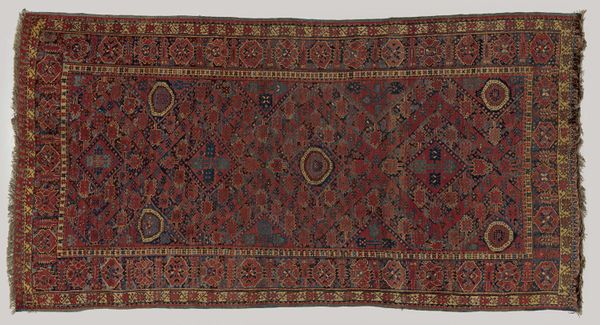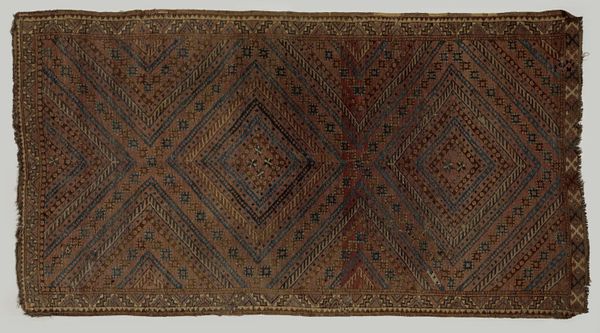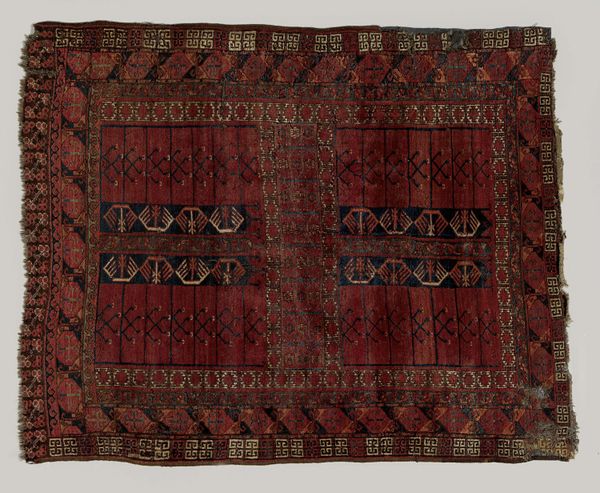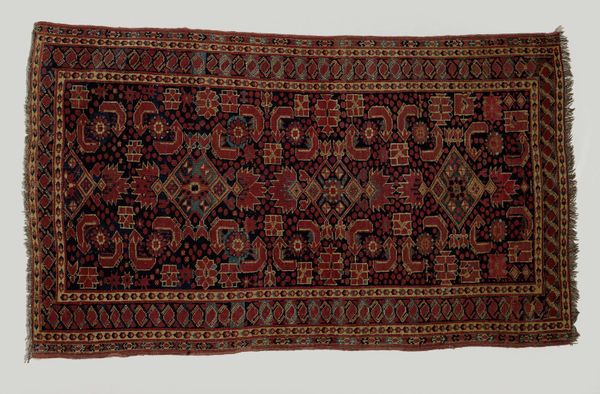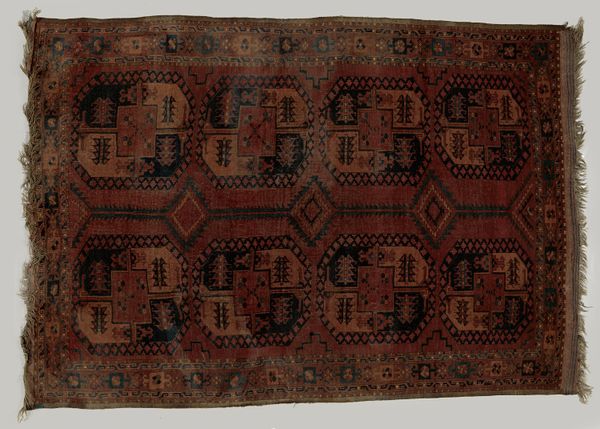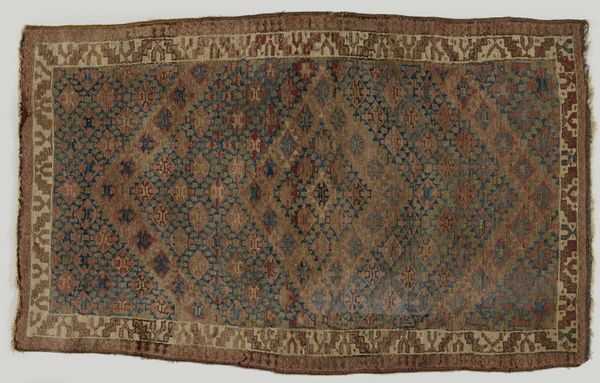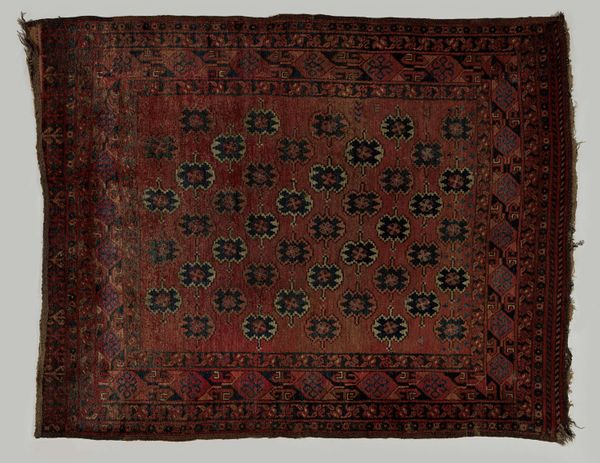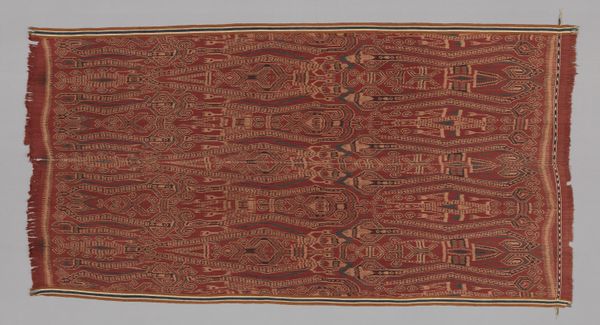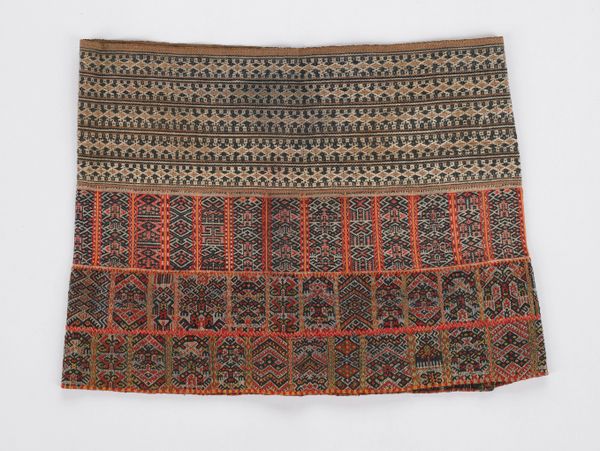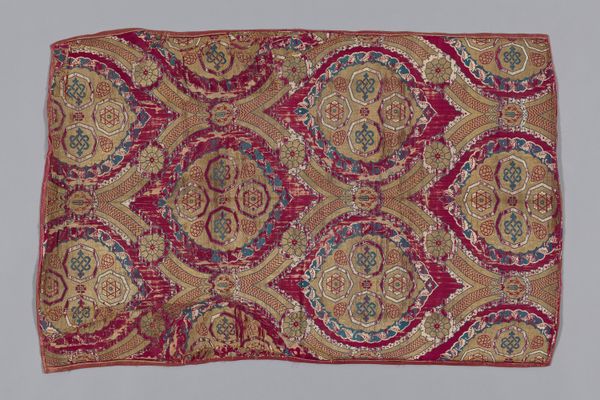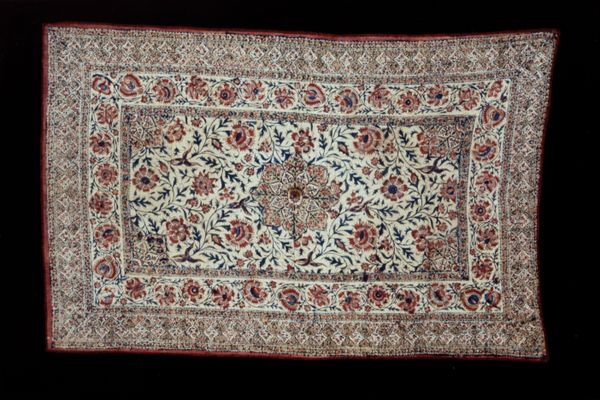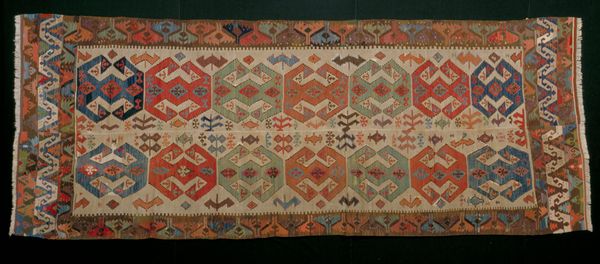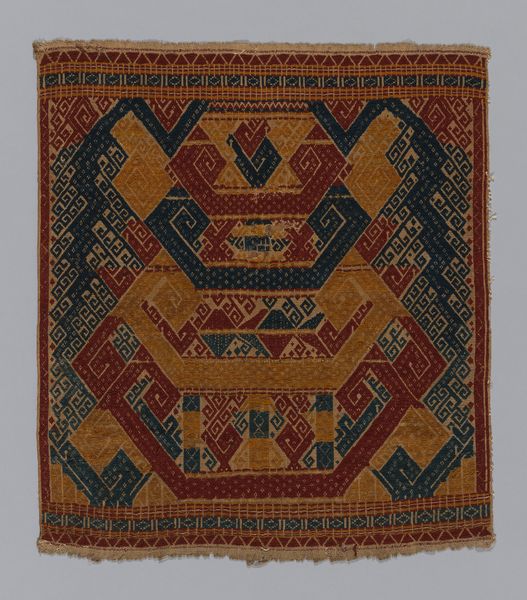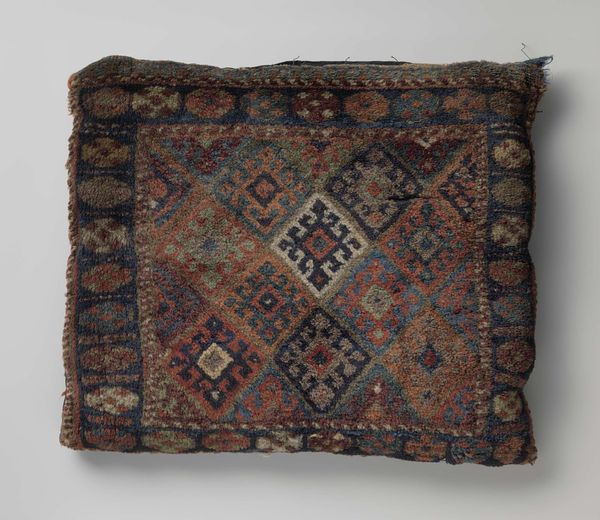
weaving, textile
#
pattern heavy
#
natural stone pattern
#
weaving
#
textile
#
geometric pattern
#
abstract pattern
#
geometric
#
repetition of pattern
#
regular pattern
#
pattern repetition
#
islamic-art
#
textile design
#
imprinted textile
#
layered pattern
Dimensions: height 148 cm, width 127 cm
Copyright: Rijks Museum: Open Domain
This is a fragment of an Eastern carpet, of unknown date, made by the Ersari people. Notice the interplay of deep reds and dark blues which create a visual texture that invites closer inspection. The composition is dominated by geometric forms, particularly the repeated octagonal motifs. These shapes are not isolated; they are integrated within a lattice of smaller, more intricate patterns. The carpet thus balances large, recognizable forms with a complex network of details, asking us to consider the relationship between the individual element and the whole. Within a structuralist framework, the octagons may act as signs that carry cultural meaning. They could represent harmony, balance, or other symbolic notions pertinent to the Ersari culture. The fragment, then, is not merely a decorative object, but a coded text reflecting the values of its makers. As you observe it, consider how these geometric shapes create a dynamic interplay, challenging fixed meanings and inviting ongoing interpretation.
Comments
No comments
Be the first to comment and join the conversation on the ultimate creative platform.
